3 Steps to Beautiful Stucco – DIY!
I love the look of stucco! Here are 3 steps to beautiful Stucco – DIY!
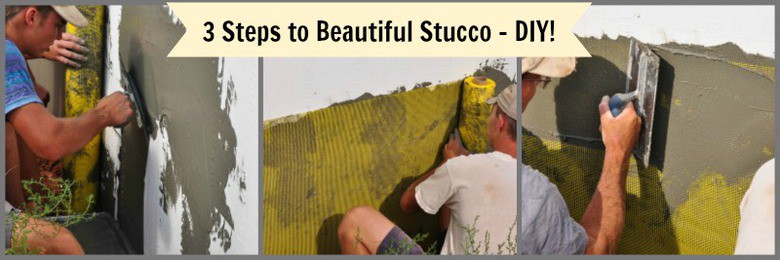
For a chronological listing of our ICF building see ICF Building Index.
Especially since we are going for the “Tuscan” look in our vineyard home, stucco is what I want!
Real stucco is applied in multiple layers and is very labor intensive. But, we have found something that gives the same look as stucco but is more durable and easy to apply – great for do-it-yourself’ers like us. It is the Exterior Insulation Finishing System or EIFS for short.
For a bit of background, we have done several building projects using insulated concrete forms (ICF) including our house overlooking the vineyard, filter house, barn, and greenhouse. You can find a chronological index of these projects in the ICF Building Index tab in the menu bar.
We did a basement expansion in preparation for building the main living area upstairs using the ICF blocks. Now the finishing touches will be the EIFS coat.
3 steps to Apply EIFS
1. Base Coat
After cleaning off any dirt or dust on the ICF walls by sweeping them with a broom, the base coat which is a polymer modified cement is applied. It is a mix of cement, fine sand and a polymer which adds strength and prevents cracking. The base coat is applied in a thin 1/8 inch coat over the styrofoam blocks using a trowel.
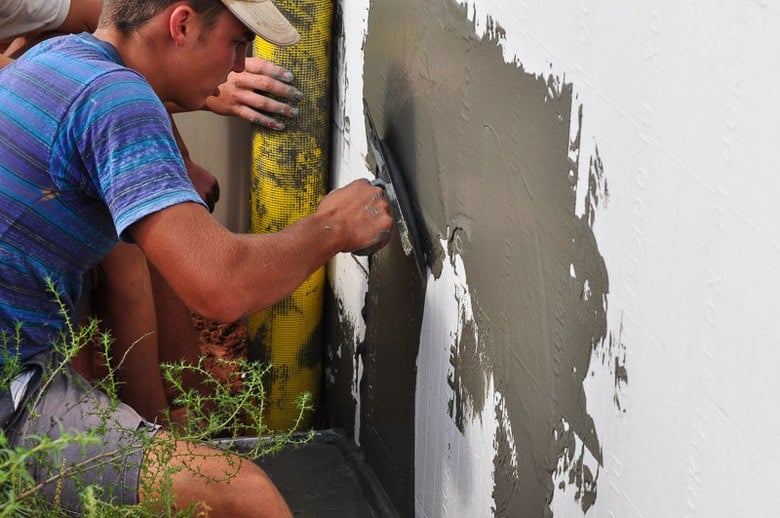
2. Fiberglass Mesh
A bright yellow fiberglass mesh is embedded in the wet cement – yellow is my favorite color but, it is bright even for me!
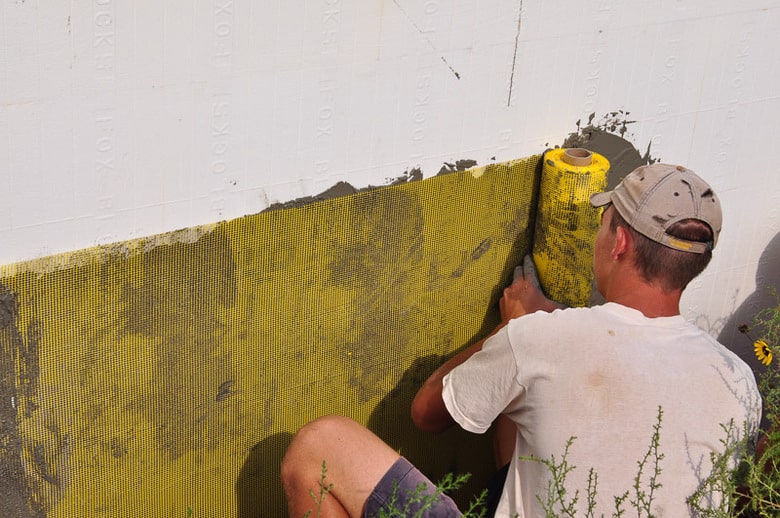
The trowel is used to press and smooth the concrete over the mesh covering it. The mesh is 3 feet wide. One person holds the roll of mesh to the wall while another presses it into the cement.
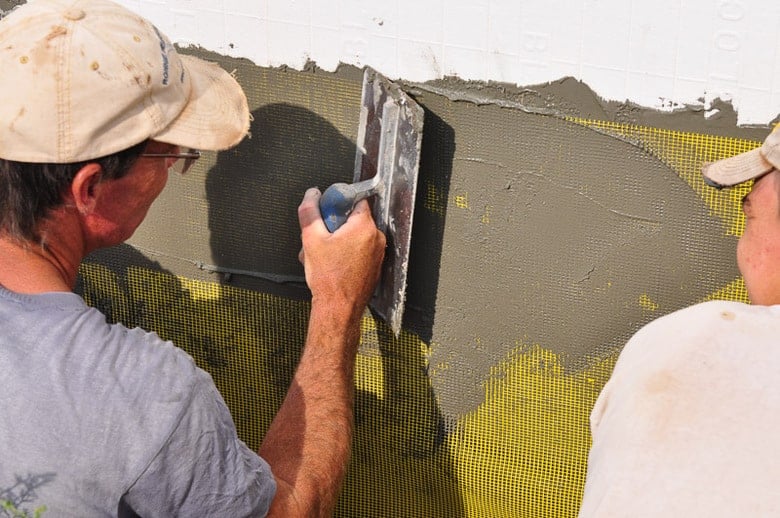
After the mesh is completely covered in cement, a wet sponge trowel is used to smooth the surface in preparation for the top coat.
The color of the finished base coat is grey – but not for long – that is the next step! In the photo below, you can see where progress was stopped by the rain!
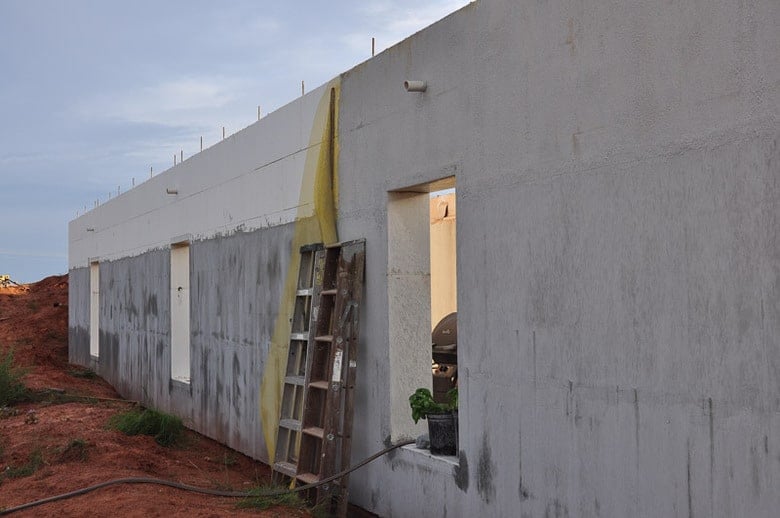
3. Acrylic Top Coat
The final coat is the acrylic top coat. It not only gives the desired color but is waterproof. Our color will be pale yellow – remember, yellow is my favorite color!
With all the rain we are having, the yellow top coat is not yet done – check back for the finished look of the basement! But, if you are like me and are impatient, just wanting a sneak peek, be sure to check out the filter house or barn!

I am being nosy but is the basement expansion living space for all or bedrooms?
Sarah, that is the nice thing about being friends, nosy isn’t nosy, it is just being interested! Part of the expansion will be a bedroom, half will be for John’s tools so we can move everything out of the shed (including a couple of freezers) and get rid of it! We will have a bit more room to spread out 😉 Thanks for being a friend and being interested!
I love your building updates!
Thanks, Rachael!
Great pictures showing off your project and the process of embedding the mesh into the existing wall. For smoother finishes, this is the way to go because it really cuts down on the number of cracks that may appear. Would love to see how it finally turned out.
Thanks, Ryan!
Do you think it would be possible to build a freestanding wall in the garden using this method?
Elizabeth, yes! On the patio we used cinder blocks (concrete blocks) filled with concrete and reinforced with rebar for a wall and it is very strong! The EIFS went on like a dream for that stucco look.
This is such a cruel tease. ‘Ha ha I did it but won’t tell you how” How much of each ( cement, fine sand and a polymer) were mixed together? Also, no photos of the project after it was completed so people can see how the finished projected worked. This was done in 2014…it is now 2020…no updates to state whether this project held up.
Barbara, I sent an email.
Great DIY tips for beautiful stucco! It’s always helpful to know the right steps to take when tackling a project like this.